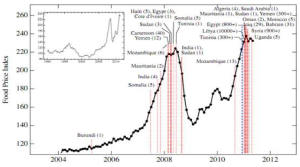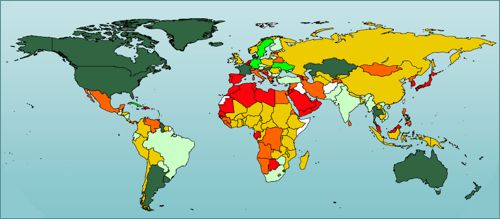This a reply to this “progressive” text I found on the internet: http://www.commondreams.org/view/2013/04/20
One thing about making comparisons of history is that, while obviously it’s good to learn from historical successes and mistakes, it is misleading if the present rests on a far different ground to the past. Slavery was a losing business proposition for the United States. Much of Europe had already abolished it. The free worker was simply better, and it was only in the interest of a class of slave owners that it be kept. What are the slave owners of the present age? The fossil fuel industry? They are the Bad Guys who are the only thing holding back the world from being sustainable? Somehow, I don’t think it’s all that easy.
The vast majority of people today live in an economic system called capitalism, and are dependent on wage labour. This is a pretty simple fact, but it’s in a way far from obvious – their ancestors were not. In any event, for most people, there seems to be no alternative to this arrangement – to turn a popular phrase on the head, money is everything. The analogy to slavery seems to be halting here, it is rather a more advanced slavery with no clear pretenders.
Yet, there seems to be obvious splinters in the wall. Capitalism is dependent on economic growth – to the people I’ve made this statement to, just about everyone who defends such a system agrees with this fact, but that this growth should somehow go on. In a finite world, that seems very problematic.
Perhaps they’ll go with the direct route and deny that the world is truly approaching its limits – the oil is much more plentiful than it seems to be, or the renewable energy sources much better than they appear to be. Perhaps they’ll deny that economic growth has to affect anything. Particularly in the Anglosaxon world, the idea of the postindustrial society is strong. In more crass terms, however, it is not postindustrial as much as it is deindustralised, debt levels, both public and private, ballooning. To go on to say that less energy is embedded in every GDP in such a situation is of course nothing but obscene.
Perhaps they have some sort of intellectual honesty in their spine and simply conclude that’s that and the demands of the economic system (or “what the people want” or whatever they want to call it) is going to go on until everything is dead. And that it seems to be all there is to it. Either we can hope for a better slavery that can somehow transcend its internal or external obstacles, or we’ll still have slavery no matter how bad it is. It’s slavery forever. To quote a certain Slovenian philosopher: “It’s easy to imagine the end of the world — an asteroid destroying all of life, and so on — but we cannot imagine the end of capitalism.”
The “abolitionists” of today do not desire the end of slavery, they do not in fact seem to understood what slavery is, and want to go from Slavery A to Slavery B. Or they are not abolitionists at all, but believe in the infinity of slavery. I wonder if we can’t get rid of slavery after all, or if it doesn’t just go away on its own.


